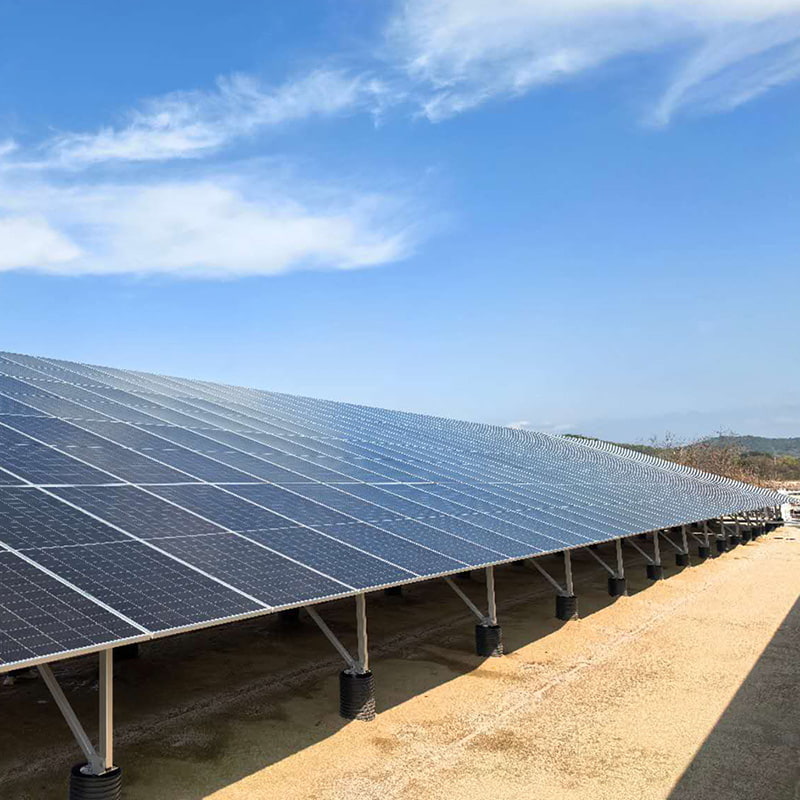Apr 23, 2025
Understanding Solar Ground Support Systems: Design Variations and Benefits
Solar panel ground support structures provide a stable foundation for photovoltaic arrays, offering flexibility across diverse terrains and project requirements. Multiple mounting configurations exist, each tailored to specific performance, environmental, and budgetary needs.
1. Fixed-Angle Mounting Systems
Design: Permanent tilt angle set according to geographic latitude.
Key Benefits:
Economical installation and operation.
Minimal upkeep due to static components.
Resilient against extreme weather.
Preferred for utility-scale solar farms.
2. Manually Adjusted Seasonal Systems
Design: Periodic angle modifications to align with shifting sun paths.
Key Benefits:
Moderately improved generation (5–15%) over fixed systems.
Affordable upgrade from fixed mounts.
Adaptable to seasonal solar position changes.
3. Single-Axis Solar Trackers
Design: Automated east-to-west rotation tracking daily sun movement.
Key Benefits:
Significant output boost (20–30%) versus fixed arrays.
Ideal for commercial and industrial installations.
Enhanced power density per land area.
4. Dual-Axis Solar Trackers
Design: Full sun-following capability across both daily and seasonal paths.
Key Benefits:
Maximum energy harvest (up to 40% gain).
Essential for high-latitude regions.
Perfect for precision applications like scientific facilities.
5. Elevated Pole Mounts
Design: Raised panel arrays on vertical supports.
Key Benefits:
Minimal ground footprint on rough landscapes.
Reduced vegetation interference.
Compatibility with tracking mechanisms.
6. Non-Invasive Ballasted Platforms
Design: Weight-secured bases eliminating ground disturbance.
Key Benefits:
Zero penetration for protected surfaces.
Rapid deployment without foundations.
Modular portability for temporary sites.
Why Choose Ground-Based Solar Arrays?
Superior Thermal Regulation: Natural cooling enhances performance.
Precision Positioning: Unrestricted alignment optimization.
Expandable Configurations: Simplified capacity increases.
Accessible Servicing: Ground-level maintenance access.
Avoiding Rooftop Limitations: Eliminates structural concerns.
Large-Project Suitability: Optimal for utility-grade deployments.
Selecting the Optimal System
Project-specific factors—including financial parameters, site characteristics, energy objectives, and spatial constraints—determine the ideal solution. While fixed-angle systems offer budget-friendly reliability, tracking variants deliver peak productivity. Ballasted designs protect delicate sites, and pole mounts conquer challenging topography.
Need guidance for your specific application? Consult our solar engineering specialists.
Read More


